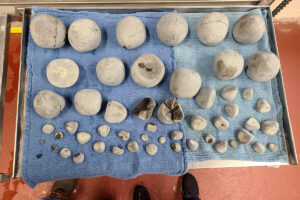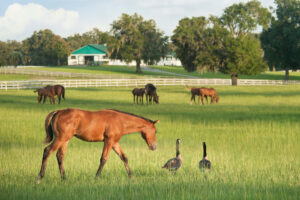Equine Coronavirus Diagnostics: Take Fecal Samples

Equine coronavirus is a relatively recently recognized infectious disease of adult horses. Its clinical signs of fever, lethargy, anorexia, colic, and diarrhea, however, can point to other diseases. This presents a diagnostic challenge for treating veterinarians. So what samples should a practitioner collect on a sick horse to confirm an equine coronavirus infection?
Nicola Pusterla, DVM, PhD, Dipl. ACVIM, professor of medicine and epidemiology at the University of California, Davis, School of Veterinary Medicine, attempted to answer this question during the 2018 American Association of Equine Practitioners Convention, held Dec. 1-5 in San Francisco, California.
“Equine coronavirus makes liars out of horses,” he said, “particularly horses with fever, but no respiratory signs (nasal discharge, coughing) and no gastrointestinal signs (diarrhea, colic). What sample do you collect? It has you scratching your head
Create a free account with TheHorse.com to view this content.
TheHorse.com is home to thousands of free articles about horse health care. In order to access some of our exclusive free content, you must be signed into TheHorse.com.
Start your free account today!
Already have an account?
and continue reading.

Related Articles
Stay on top of the most recent Horse Health news with

















